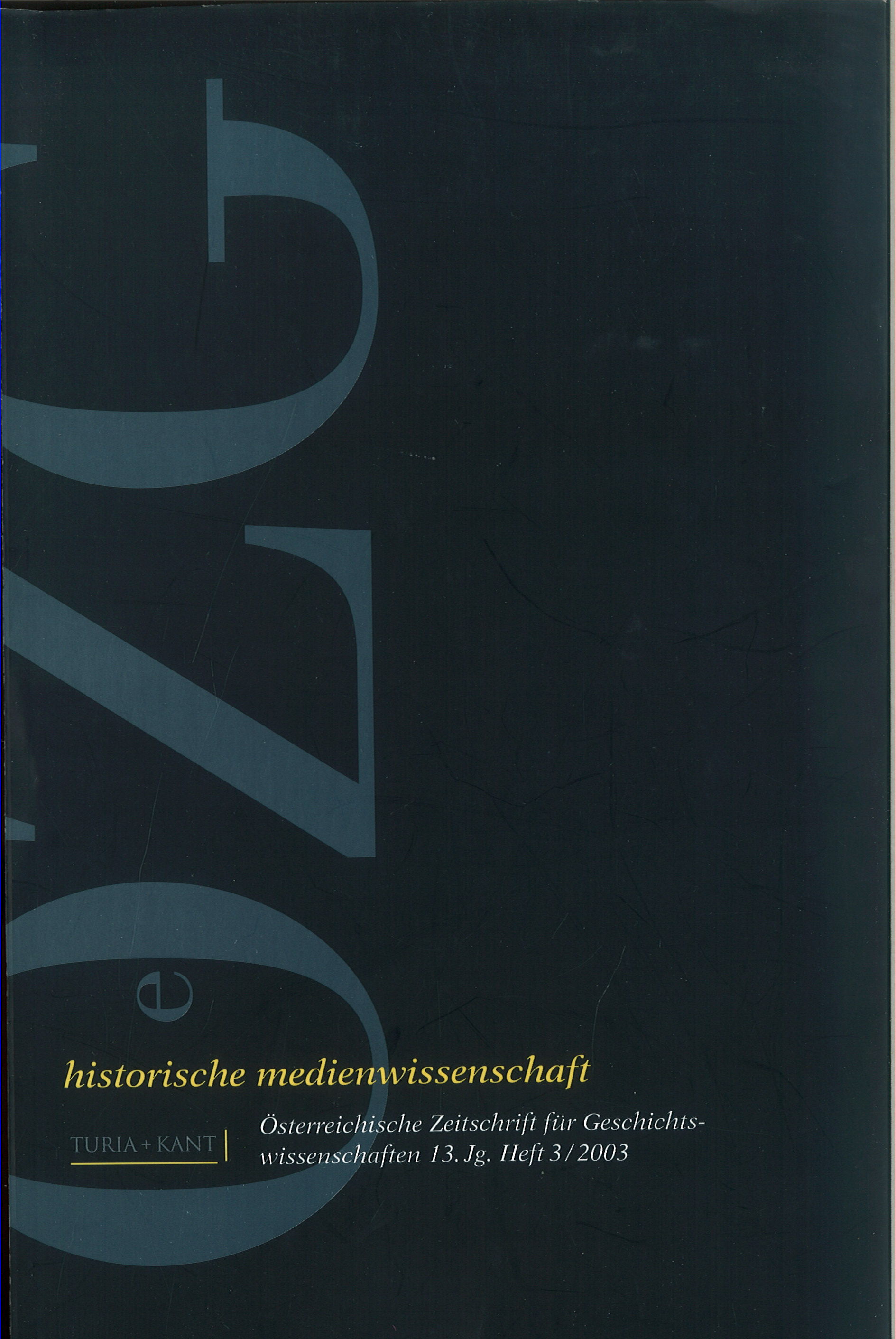The Coffee Machine. Trading Power and Metaphor of the Programming Language JAVA
DOI:
https://doi.org/10.25365/oezg-2003-14-3-6Abstract
This paper focuses on the coffee metaphor of the programming language JAVA un der the perspective of economical historiography. What historical implications and managerial consequences does this comprehensive metaphoric provide? In opposition to more mathematical computer languages, such as C, every so called object orientated programming language necessarily needs a metaphorical description in order to make its encoded objects readable, operable, and executable. The main thesis proposes that the chosen metaphor of coffee is by no means arbitrary. Instead, the coffee metaphor is selected with great care because it is meant to be both a marketing strategy and an economical itinerary of dissemination. Proof of this thesis is given by an historiographical analogy between the genea logy of JAVA developed by Sun Microsystems (1995) and the introduction of coffee in Europe accomplished by the Dutch Verenigde Oostindische Compagnie (1616). The enormous profits which result from the coffee trade in the 17th Century as well as its logistic and economic basis served Sun as historical model. In pursuing these goals Sun relies on the internet as a network of trade for which JAVA is intended to be the dominating programming language of e-commerce.


